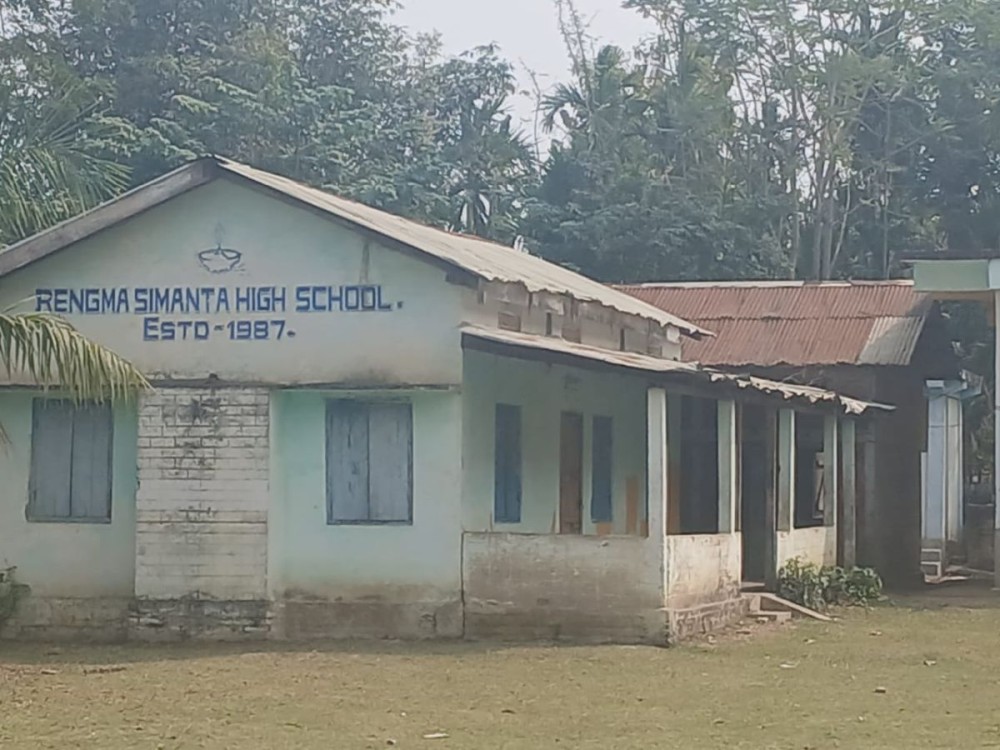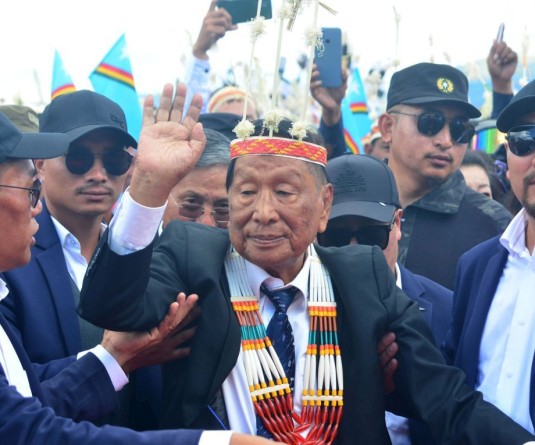Rengma Simanta High School, Uriamghat, Gologhat falling under Rengma Reserve Forest, Assam.

Dimapur, August 1 (MExN): The All Rengma Welfare Organisation (ARWO) has welcomed the eviction of illegal settlers from the Rengma Reserve Forest in Uriamghat, Golaghat District, Assam, calling it a significant step towards the restoration of indigenous rights, law and order, and justice in the region.
In a press release, ARWO stated that the Rengma Reserve Forest is not only an ecological asset but also holds “profound ancestral, historical, and cultural importance for the Rengma Naga tribe, one of the oldest indigenous communities of the region.”
The organisation said the land “forms part of the traditional Rengma homeland, predating modern administrative boundaries and political developments,” and described it as “a living heritage site for the Rengma people, embedded in their identity and cultural continuity.”
The ARWO noted that the undivided contiguous Rengma homeland includes the Rengma Reserve Forest, Rengma River valley, Rengma Tea Estate, Nambor Reserve Forest, Gholapani, Haldibari, Lisa Goan, Rengma Pathar, Uriamghat, Sarupathar, Naojan and Naokhuti areas—now under Golaghat district. It also includes areas under Karbi Anglong such as Nambor Reserve Forest, Kaliani Reserve Forest, Dhansari Reserve Forest, Doldali Reserve Forest, Diphu River Valley, and Jamuna River Valley, as well as parts of Nagaland including Tseminyu district.
While extending appreciation to the Assam Chief Minister Himanta Biswa Sarma for the eviction drive, the ARWO called upon the Assam government to “continue such lawful and rightful actions,” and demanded permanent measures to “ensure the protection of the Rengma Reserve Forest, and initiate steps for the recognition and restoration of the traditional rights of the Rengma Nagas over their ancestral lands.”
The organisation further expressed gratitude to civil society organisations, youth organisations, Naga political groups, and the Nagaland Chief Minister Neiphiu Rio “for taking proactive steps to protect the state border.”
The ARWO urged that steps also be taken to prevent future encroachments into the area.





